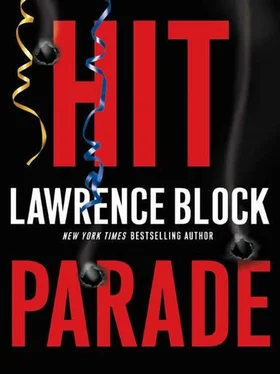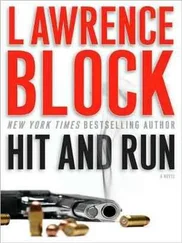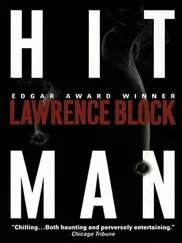“It’s pretty interesting,”he told Dot. “There’s this company called Central Indiana Finance. They buy and sell mortgages, and do a lot of refinancing. The stock’s traded on the NASDAQ. The symbol is CIFI, but when people talk about it they refer to it as Indy Fi.”
“If that’s interesting,” she said, “I’d hate to hear your idea of a real yawner.”
“That’s not the interesting part.”
“No kidding.”
“The stock’s very volatile,” he said. “It pays a high dividend, which makes it attractive to investors, but it could be vulnerable to changes in the interest rates, which makes it speculative, I guess. And a couple of hedge funds have shorted the stock heavily, along with a lot of private traders.”
“Let me know when we get to the interesting part, will you, Keller?”
“Well, it’s all kind of interesting,” he said. “You walk around in a shopping mall, you don’t expect to find out this stuff.”
“Here I am, finding it out without even leaving the house.”
“There’s this class action suit,” he said. “Brought on behalf of the Indy Fi stockholders, though probably ninety-nine percent of them are opposed to the whole idea of the suit. The suit charges the company’s management with irregularities and cover-ups, that sort of thing. It’s the people who shorted the stock who are behind the suit, the hedge fund guys, and their whole reason for bringing it seems to be to destroy confidence in the company, and further depress the price of the stock.”
“Can they do that?”
“Anybody can sue anybody. All they risk, really, is their legal expenses, and having the suit get tossed out of court. Meanwhile the company has to defend the suit, and the controversy keeps the stock price depressed, and even if the suit gets settled in the company’s favor, the short interests will have had a chance to make money.”
“I don’t really care about any of this,” Dot said, “but I have to admit you’re starting to get me interested, although I couldn’t tell you why. And our quarry’s going to testify for the people bringing the suit?”
“No.”
“No?”
“They subpoenaed him,” he said. “Meredith Grondahl. He’s an assistant to the chief financial officer, and he’s supposed to testify about irregularities in their accounting procedures, but he’s no whistle-blower. He’s more of a cheerleader. As far as he’s concerned, Indy Fi’s a great company, and his personal 401-K is full of the company’s stock. He can’t really damage either side in the suit.”
“Then why would somebody decide to summon you to Indianapolis?”
“That’s what I’ve been wondering.”
He thought the connection might have broken, but she was just taking her time thinking it over. “Well,” she said at length, “even though this gets us interested, Keller, we’re also disinterested, if you get my drift.”
“It doesn’t change things.”
“That’s my drift, all right. We’ve got an assignment, and the fee’s half paid already, so the whys and wherefores don’t make any difference. Somebody doesn’t want the guy to testify about something, and as soon as you nail that down, you can come on home and play with your stamps. You bought some today, didn’t you tell me that earlier? So come on home and you can paste them in your book. And we’ll get paid, and you can buy some more.”
The next morning,Keller got up early and drove straight to Grondahl’s house in Carmel. He parked across the street and sat behind the wheel of his rented Ford, a newspaper propped on the steering wheel. He read the national and international news, then the sports. The Pacers, he noted, had won last night, in double overtime. The local sportswriter described the game as thrilling, and said the shot from half court that fell in just as the second overtime period ran out demonstrated “the moral integrity and indomitable spirit of our guys.” Keller wished he’d taken it a small step further, claiming the ball’s unerring flight to the basket as proof of the Almighty’s clear preference for the local heroes.
Reading, he kept an eye on Grondahl’s front door, waiting for Greenie to appear. He still hadn’t done so by the time Keller was done with the sports pages. Well, it was early, he told himself, and turned to the business section. The Dow was up, he learned, in heavy volume.
He knew what this meant, he wasn’t an idiot, but it was something he never followed because it didn’t concern him, or hold interest for him. Keller earned good money when he worked, and didn’t live high, and for years he had saved a substantial portion of the money that came into his hands. But he’d never bought stocks or mutual funds with it. He tucked some of it into a safe-deposit box and the rest in savings accounts. The money grew slowly if it grew at all, but it didn’t shrink, and there was something to be said for that.
Eventually he reached a point where retirement was an option, and he realized that he’d need a hobby to fill the golden years. He took up stamp collecting again, but in a far more serious fashion this time around. He started spending serious money on stamps, and his retirement savings waned as his collection grew.
So he’d never managed to get interested in the world of stocks and bonds. This morning, for some reason, he found the business section interesting, not least because of an article on Central Indiana Finance. CIFI, which opened the day at $43.27 a share, had fluctuated wildly, up five points at its high for the day, down as much as seven, and finishing the day at $40.35. On the one hand, he learned, the shorts were scrambling to cover before the ex-dividend date, when they would be liable for the company’s substantial dividend. On the other, players were continuing to short the stock and drive the price down, encouraged by the pending class action lawsuit.
He was thinking about the article when the door opened and Meredith Grondahl emerged.
Grondahl was dressed for the office, wearing a dark gray suit and a white shirt and a striped tie and carrying a briefcase. That was to be expected, it being a Thursday, but Keller realized he’d unconsciously been waiting for the man to show himself in shorts and a singlet, dribbling a basketball.
In the driveway, Grondahl paid no attention to the basketball backboard but triggered a button to raise the garage door. There was, Keller noted, only one car in the garage, and a slew of objects (he made out a barbecue grill and some lawn furniture) took up the space where a second car might otherwise have been parked.
Grondahl, given his position in the corporate world, could clearly have afforded a second car for his wife. Which suggested to Keller that he didn’t have a wife. The fine suburban house, on the other hand, suggested that he’d had one once upon a time, and Keller suspected she’d chosen to go away, and taken her car with her.
Poor bastard.
Keller, comfortable behind the wheel, stayed where he was while Grondahl backed his Grand Cherokee out of the driveway and drove off somewhere. He thought about following the man, but why? For that matter, why had he come here to watch him leave the house?
Of course there were more basic questions than that. Why wasn’t he getting down to business and fulfilling his contract? Why was he watching Meredith Grondahl instead of punching the man’s ticket?
And a question that was, strictly speaking, none of his business, but no less compelling for it: Why did somebody want Meredith Grondahl dead?
Thinking, he reminded himself, was one thing. Acting was another. His mind could go where it wanted, as long as his body did what it was supposed to.
Drive back to the motel, he told himself, and find a way to use up the day. And tonight, when Meredith Grondahl comes home, be here waiting for him. Then return this car to Hertz, pick up a fresh one from somebody else, and go home.
Читать дальше












